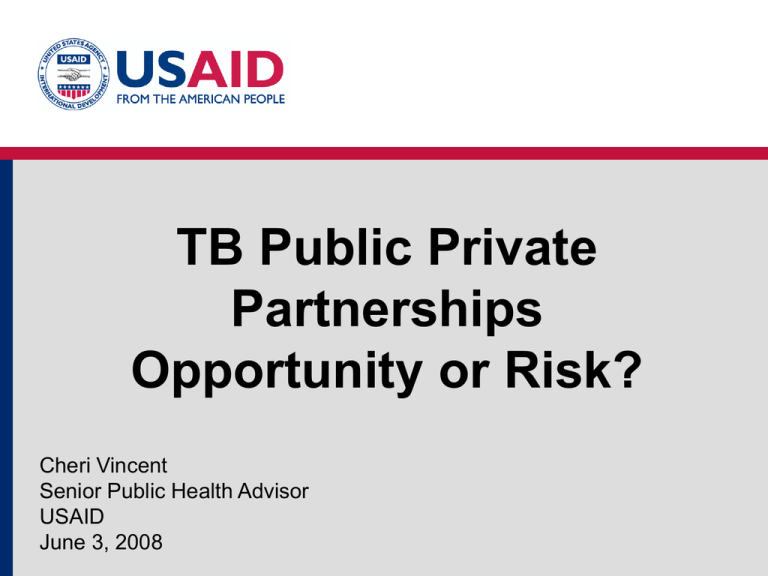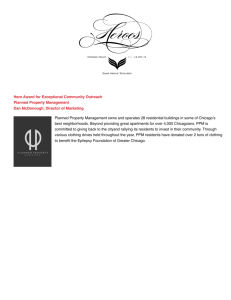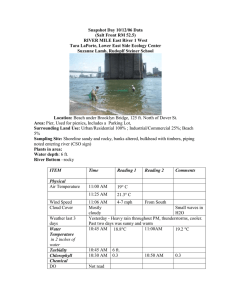TB Public Private Partnerships Opportunity or Risk? Cheri Vincent
advertisement

TB Public Private Partnerships Opportunity or Risk? Cheri Vincent Senior Public Health Advisor USAID June 3, 2008 USAID’s commitment to PPP • Strong advocate for Public Private Partnerships at all development levels and fields • developed the Global Development Alliance (GDA) in 2001 - unique partnership to build public private alliances - >680 alliances with 1,700 partners at the global level - leveraged > $9 billion from public and private resources. • Many more partnerships supported at country/local levels. • USAID Administrator Fore challenged the Agency to “triple” investment in all types of PPPs by the end of 2009. USAID’s Commitment to TB PPM • 2001 – USAID was one of the first supporters of TB PPM activities through WHO; • Global level TB PPM support ~ $4.5 million/yr through WHO, TB CAP, Global Drug Alliance, USP, RPM+, CSHGP TB grants, and PATH TO; • 18 country level TB PPM activities supported through various partners. Global TB PPM Activities Supported • Stop TB Partnership PPM Sub working group; • TA to pilot and scale-up TB PPM at the global, regional, & country level; • Guidance & tool development to strategically scale-up PPM; • TA to address country level constraints to scale-up of PPM; • New drug development and expanded manufacturing of 2nd line drugs; • Mobilization of resources for PPM scale-up, e.g. GF applications. Source: WHO Country TB PPM Activities Supported • Bangladesh: TB/HIV referral linkages with NGOs and “Blue Star” service providers • Cambodia: pharmacy staff & traditional healer training & referral systems • Ethiopia: training and referral systems for clinics (private, NGO, work place) and private pharmacies; and development of medical college TB curriculum • Ghana: private sector lab facilities & national coordination of TB PPM • Indonesia: ISTC adoption and implementation, and Hospital DOTS Linkages (HDL) expansion • Kenya: Integration of quality services in private facilities (including TB) • Philippines: PPMD expansion, systems strengthening, and TB financing mechanisms • Other countries with PPM activities: Djibouti, DR, DR Congo, India, Malawi, Mexico, Pakistan, Senegal, South Africa, Tanzania, & Zambia. Source: USAID FACTS Database Success relies on… • Public sector leadership in organization of the partnership; • Partnership exploits the comparative advantage and unique skill set of its members; • Joint program development of all key stakeholders; • Clearly defined responsibilities, risks, and resources required of each partner; • Inclusiveness and transparency; and • Appropriate incentives for each partner. Lessons Learned for Successful partnerships • A comprehensive strategic plan to lead the partnership is essential; • Designation of a leader responsible for ensuring quality and equity of services; • Each partner must provide competent and sufficient human resources; • Partners need to be flexible and adapt to current and variable situations and environment; • Clear and transparent lines of communication; and • M&E system to document baseline information as well as progress for advocacy and motivation. Challenge: Partners may say the same thing but mean different things. Challenge: Partners and Beneficiaries have Biased Perceptions of Quality Challenge: Ensuring the Quality Ultimate Challenge: Scale-up and Sustain Quality TB PPM Bottom Line Opportunities must outweigh the risks • Private health care sector has and continues to expand rapidly in developing countries. • People continue to go to secondary care and private facilities first, making them an essential partner to improve case detection and diagnostic delays. THANK YOU! Together in partnership we are more than the sum of our parts!


